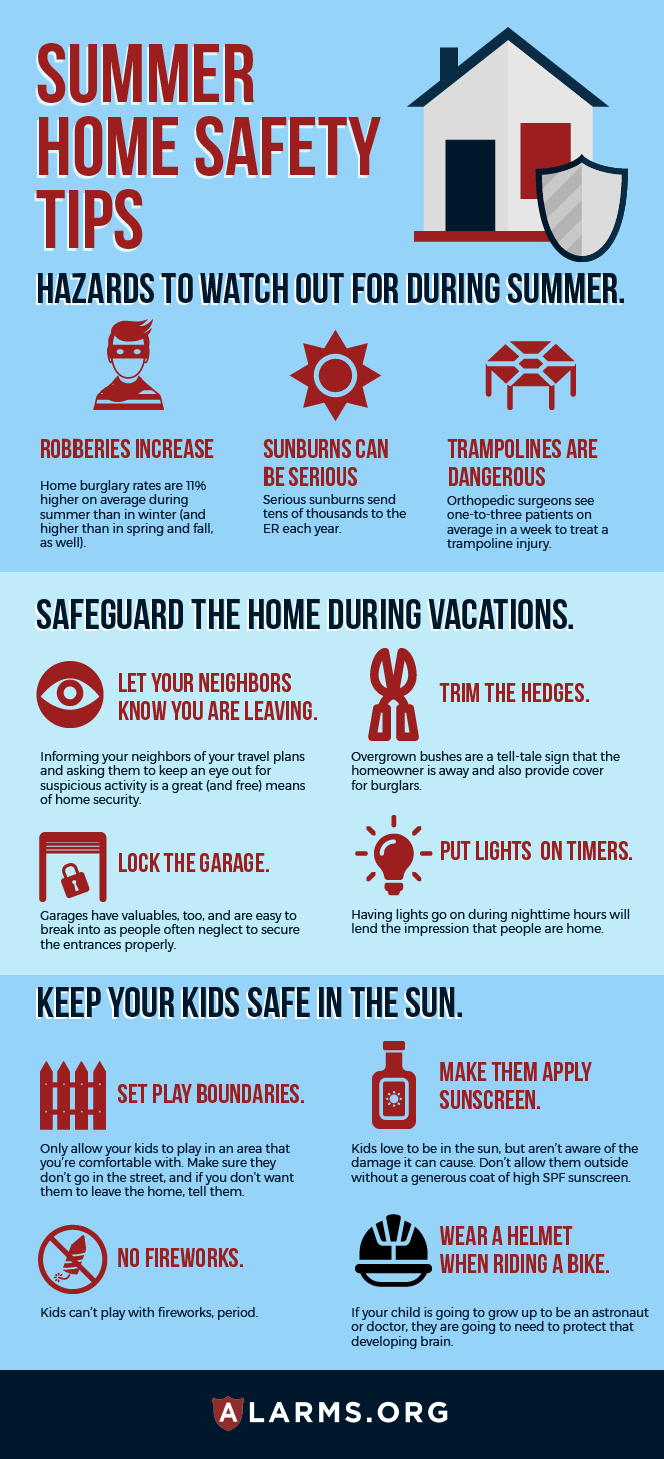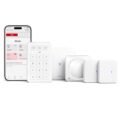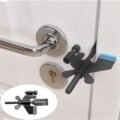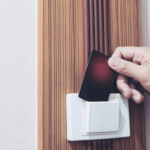Home Safety Tips: Home safety is crucial for every family. It ensures peace of mind.
Also Read
In this blog, we will explore essential tips to keep your home safe. If you’re worried about intruders, fires, or accidents, these tips will help. Home should be a sanctuary, but without proper precautions, it can pose risks.
From securing doors and windows to installing smoke detectors, every step counts. Simple measures can prevent major incidents. Your family’s safety is worth the effort. Let’s dive into practical and easy-to-follow safety tips. Keep reading to learn how to make your home a safer place for everyone.
Secure Entry Points
Keeping your home safe starts with securing entry points. These are the doors and windows. They are the most common targets for intruders. By focusing on these areas, you can significantly reduce the risk of a break-in.
Lock Doors And Windows
Always lock your doors and windows. This seems simple, but it’s effective. Double-check them before leaving or going to bed. Use sturdy locks that are hard to pick. Consider deadbolts for added security. Don’t forget about sliding doors. Install a bar or rod in the track to prevent them from being forced open.
Install Security Systems
Security systems act as a strong deterrent. Install alarms on all entry points. Many systems alert you and the authorities if a breach occurs. Consider adding security cameras. They provide surveillance and can capture evidence.
Place cameras in visible spots to discourage intruders. Modern systems also offer remote monitoring. You can check your home from anywhere using your smartphone.

Credit: www.nia.nih.gov
Fire Safety
Fire safety is essential for any home. It protects your family and property. Being prepared can help prevent disasters. Understanding the basics of fire safety can save lives.
Install Smoke Detectors
Smoke detectors are your first line of defense against fires. They alert you to smoke before it becomes a larger problem. Installing them is easy and inexpensive.
- Place smoke detectors in every bedroom.
- Install detectors in hallways and common areas.
- Check and replace batteries every six months.
- Test smoke detectors monthly.
Having smoke detectors in the right places can give you early warning. This can make a difference in an emergency.
Create An Evacuation Plan
A well-thought-out evacuation plan ensures everyone knows what to do in a fire. It helps keep your family safe and calm.
- Draw a map of your home.
- Mark two exits from each room.
- Set a meeting point outside.
- Practice the plan twice a year.
| Evacuation Plan Steps | Details |
|---|---|
| Draw a Map | Include all rooms and exits. |
| Mark Exits | Identify two exits per room. |
| Meeting Point | Choose a safe place outside. |
| Practice | Rehearse the plan regularly. |
Practicing your evacuation plan can help everyone react quickly. This can save precious time during a fire.
Childproofing
Keeping your home safe for children is crucial. Childproofing helps prevent accidents and injuries. It’s essential to create a secure environment for your little ones. Here are some important tips for childproofing your home.
Cover Electrical Outlets
Electrical outlets can be dangerous for children. Use outlet covers to prevent them from inserting objects. These covers are easy to install and remove. Some options include:
- Plastic plug covers
- Sliding outlet covers
- Box outlet covers
Plastic plug covers are simple and affordable. They fit snugly into the outlet, blocking access. Sliding outlet covers replace the existing plate. They have a sliding mechanism that covers the outlet when not in use. Box outlet covers are ideal for outlets in use. They enclose the entire outlet and plug, preventing tampering.
Secure Heavy Furniture
Heavy furniture can tip over, posing a risk to children. Secure bookshelves, dressers, and TVs to the wall. Use anti-tip straps or brackets. These devices anchor the furniture to the wall, preventing it from falling.
Here is a simple table to illustrate the steps:
| Step | Description |
|---|---|
| 1 | Identify heavy furniture |
| 2 | Purchase anti-tip devices |
| 3 | Attach straps or brackets to furniture |
| 4 | Secure straps or brackets to the wall |
By following these steps, you can greatly reduce the risk of accidents. It’s a simple process that provides peace of mind.
Childproofing your home is essential. Cover electrical outlets and secure heavy furniture. These measures help protect your children from harm.
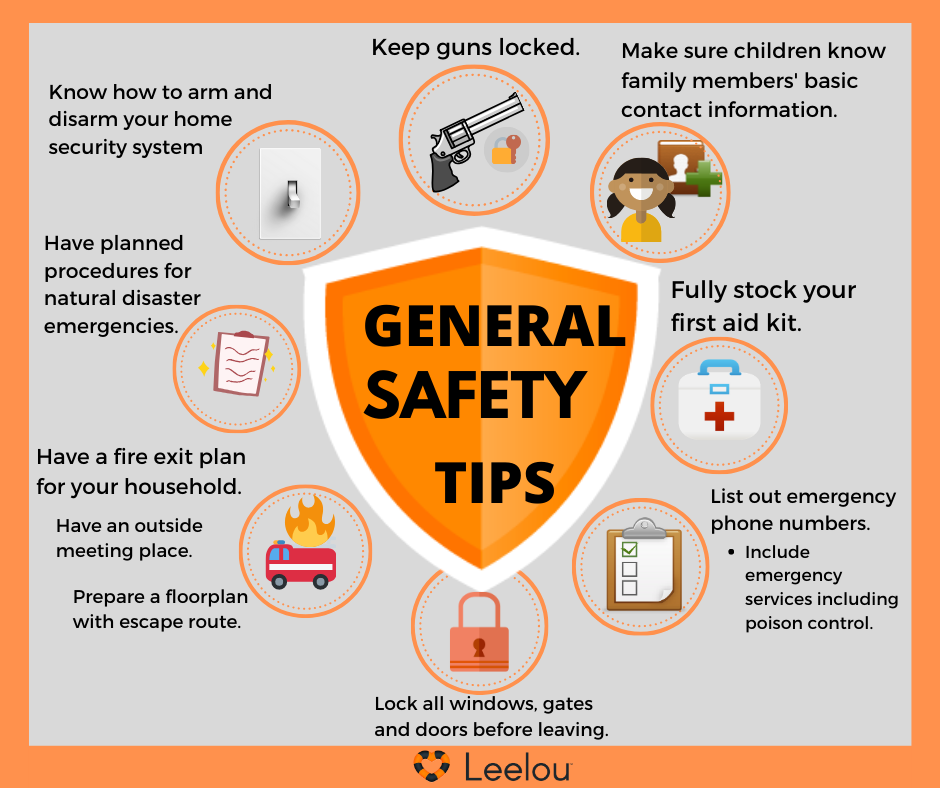
Credit: meetleelou.com
Home Maintenance
Regular home maintenance is vital for ensuring safety. It helps prevent accidents and keeps your home in good condition. Focusing on key areas, like gas leaks and electrical wiring, can make a big difference. Let’s dive into these important aspects.
Check For Gas Leaks
Gas leaks can be very dangerous. They can cause fires or explosions. To ensure safety, follow these tips:
- Inspect gas lines regularly for cracks or damages.
- Install a gas detector to alert you of leaks.
- Check for a rotten egg smell, which indicates a gas leak.
- Ensure proper ventilation in areas with gas appliances.
- Turn off gas valves when not in use.
These steps can help you detect and prevent gas leaks. Keep your home safe and secure.
Inspect Electrical Wiring
Faulty electrical wiring can lead to fires or electric shocks. Regular inspection is essential. Here are some tips:
- Check for frayed or exposed wires.
- Look for scorch marks around outlets.
- Ensure outlets and switches are not hot to touch.
- Do not overload electrical circuits.
- Hire a professional for thorough inspections.
By following these tips, you can identify and fix electrical issues. This ensures a safer home environment.
Emergency Preparedness
Emergencies can happen at any time. Being prepared can save lives. Having a plan in place helps you stay calm. Know what steps to take during an emergency.
In this section, we will cover two key areas. First, we will look at assembling a first aid kit. Then, we will discuss keeping emergency contacts handy.
Assemble A First Aid Kit
A first aid kit is essential for any home. It should contain basic medical supplies. Items like bandages, gauze, and antiseptic wipes are musts. Include pain relievers and any personal medications. A good first aid kit also has scissors, tweezers, and safety pins.
Store your first aid kit in an easy-to-reach spot. Make sure everyone in the house knows where it is. Check your kit regularly and replace used or expired items.
Keep Emergency Contacts Handy
Emergency contacts can be lifesavers. Make a list of important numbers. Include local emergency services, doctors, and nearby hospitals. Also, add contacts for friends or family who can help.
Keep this list in an easy-to-see place. You can put it on the fridge or near the phone. Ensure everyone in your home knows where to find it. Update the list often to keep it current.
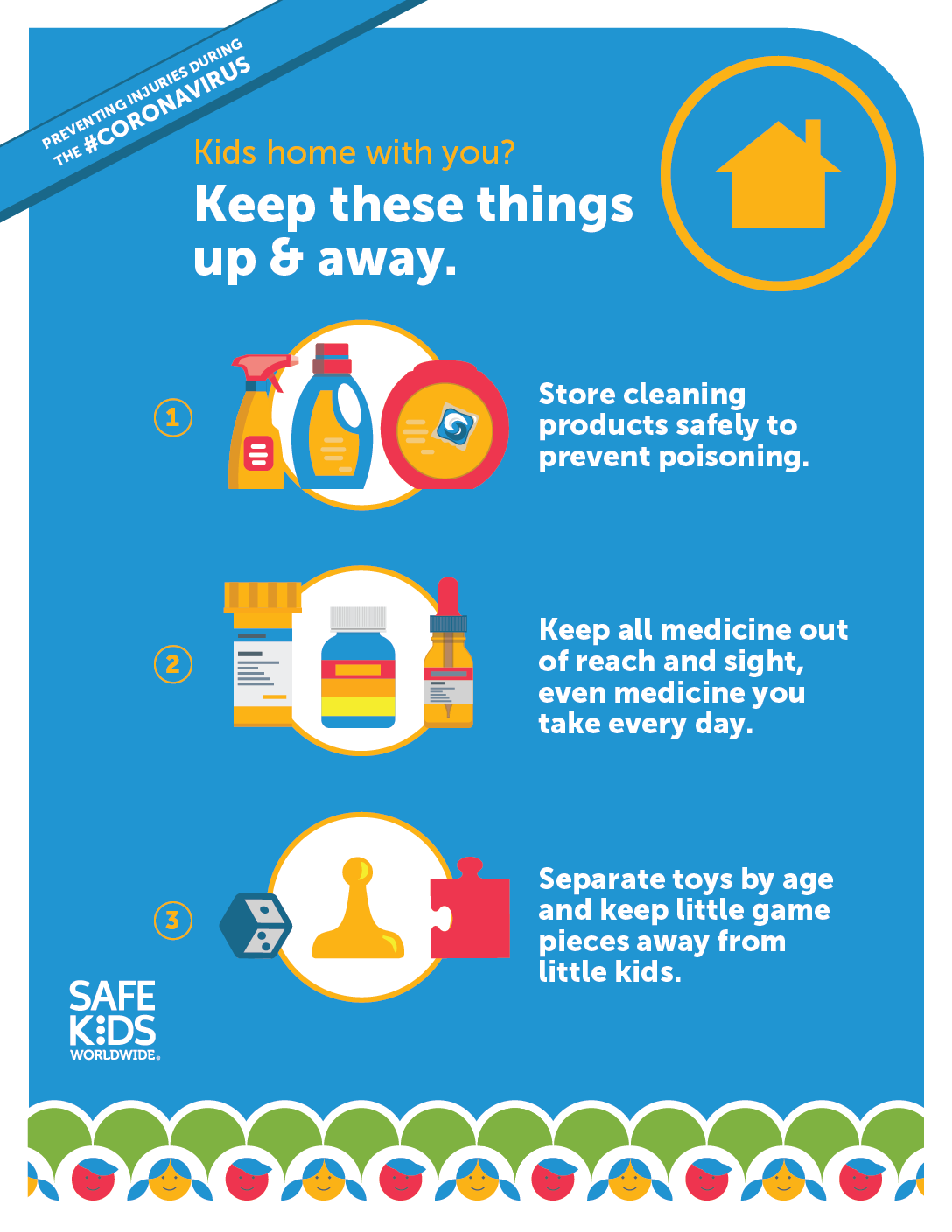
Credit: www.safekids.org
Outdoor Safety
Outdoor safety is crucial for keeping your home secure. Many dangers lurk outside your house. Taking simple precautions can make a big difference. Here are some tips to enhance your outdoor safety.
Secure Gates And Fences
Gates and fences are your first line of defense. Ensure they are in good condition. Check for any weak points or damages. Repair broken parts immediately. Use strong locks on all gates. A locked gate deters intruders. Keep the gates and fences high enough. This prevents easy access.
Maintain Outdoor Lighting
Good lighting is essential for outdoor safety. Install bright lights around your home. Focus on entry points like doors and windows.
Motion-sensor lights are very effective. They turn on when they detect movement. This surprises potential intruders. Regularly check all light bulbs. Replace any that are not working. Ensure your yard is well-lit. It helps you see clearly at night.
Safe Storage
Home safety starts with proper storage. Keeping items in the right places prevents accidents. Safe storage is essential, especially for families with children. It helps keep your home organized and secure.
Store Chemicals Properly
Household chemicals can be hazardous. Always store them in their original containers. Ensure they are labeled correctly. Keep them out of reach of children and pets. Store these items in a cool, dry place. Avoid mixing different chemicals. This can cause dangerous reactions.
Lock Up Firearms
Firearms should always be stored securely. Use a gun safe or lockbox. Keep firearms unloaded when not in use. Store ammunition separately. Make sure only authorized people have access. Teach children that firearms are not toys. This helps prevent accidents and ensures safety.
Internet Safety
Internet safety is crucial for every household. The online world is full of risks. Protecting your family from these dangers is essential. Simple steps can help ensure online safety.
Use Strong Passwords
Using strong passwords is vital. Avoid using easy-to-guess passwords like “123456” or “password.” Strong passwords include a mix of letters, numbers, and symbols. Change passwords regularly. Do not reuse passwords across different sites.
Consider using a password manager. This tool helps create and store complex passwords. It keeps your accounts safe. Never share your passwords with others. Keep them private and secure.
Monitor Online Activity
Keep an eye on your family’s online activity. Know the websites they visit. Set up parental controls on devices. These controls help block harmful content.
Educate your children about online dangers. Teach them not to share personal information. This includes their name, address, and school. Encourage open communication. Let them know they can come to you with any concerns.
Use privacy settings on social media accounts. These settings help control who can see your information. Regularly review and update these settings.
What are 10 Personal Safety Rules?
- Stay Aware of Your Surroundings: Always be mindful of what’s happening around you.
- Trust Your Instincts: If something feels off, trust your gut and remove yourself from the situation.
- Keep Emergency Contacts Handy: Have important numbers saved and easily accessible.
- Avoid Distractions: Stay off your phone and be alert, especially in unfamiliar areas.
- Secure Your Belongings: Keep your valuables close and secure.
- Learn Basic Self-Defense: Knowing how to protect yourself can be crucial.
- Stay in Well-Lit Areas: Avoid dark or isolated places, especially at night.
- Communicate Your Plans: Let someone know where you are going and when you expect to return.
- Carry a Personal Safety Device: Items like pepper spray or a whistle can be helpful.
- Know Basic First Aid: Being able to handle minor injuries can be very useful[1].
How to Maintain Safety at Home?
Maintaining safety at home involves several proactive steps:
- Install Smoke and Carbon Monoxide Detectors: Ensure they are working and check batteries regularly.
- Keep Emergency Numbers Visible: Have them posted in an easily accessible place.
- Secure Doors and Windows: Use sturdy locks and consider adding security bars or alarms.
- Eliminate Clutter: Keep walkways clear to prevent trips and falls.
- Store Hazardous Materials Safely: Keep chemicals and sharp objects out of reach of children.
- Regularly Inspect Appliances: Ensure they are in good working order to prevent fires or leaks.
- Have a First Aid Kit: Keep it stocked and know how to use it.
- Plan for Emergencies: Have an evacuation plan and practice it with your family[2].
What are 10 Safety Rules at Home for Kids?
- Never Open the Door for Strangers: Always check with an adult first.
- Stay Away from Electrical Outlets: Don’t touch them or insert objects.
- Don’t Play with Sharp Objects: Knives, scissors, and other sharp items are off-limits.
- Keep Away from Stoves and Ovens: Only use them with adult supervision.
- Know Emergency Numbers: Teach kids how to call for help.
- Don’t Climb on Furniture: It can tip over and cause injuries.
- Stay Away from Cleaning Supplies: They are dangerous and should be handled by adults.
- Be Careful with Pets: Treat them gently and know how to interact safely.
- Don’t Share Personal Information Online: Teach kids about internet safety.
- Know What to Do in an Emergency: Practice fire drills and other emergency procedures[3][4].
What are the Safety Tips for Home Security?
- Install a Security System: Cameras, alarms, and motion detectors can deter intruders.
- Secure Doors and Windows: Use deadbolts and reinforce sliding doors.
- Use Smart Lighting: Timers and motion-activated lights can make your home look occupied.
- Keep Your Yard Well-Lit: Good lighting can deter potential burglars.
- Lock Down Your Wi-Fi Network: Secure it to prevent unauthorized access.
- Eliminate Hiding Places: Trim bushes and trees near your home.
- Get a Safe: Store valuables in a secure place.
- Use Home Automation: Smart home devices can enhance security.
- Prevent House Fires: Install smoke detectors and have fire extinguishers handy.
- Build Good Neighbor Relationships: Neighbors can help keep an eye on your property[5][6].
Is there a specific area of safety you’re most concerned about?
References
Frequently Asked Questions about Home Safety Tips
How Can I Improve Home Security?
Improving home security can be done by installing security cameras, using smart locks, and adding exterior lighting. Regularly check and maintain these systems for optimal performance.
What Are The Best Home Safety Tips?
Some top home safety tips include installing smoke detectors, using surge protectors, securing heavy furniture, and keeping emergency contacts handy.
How To Prevent Home Accidents?
Prevent home accidents by keeping walkways clear, using non-slip mats, and ensuring proper lighting. Regularly inspect and repair any potential hazards.
What Should Be In A Home Emergency Kit?
A home emergency kit should include water, non-perishable food, a flashlight, batteries, a first-aid kit, and essential medications.
Conclusion of Home Safety Tips
Keeping your home safe is crucial. Simple steps can make a big difference. Check locks regularly. Install smoke detectors. Keep emergency contacts handy. Teach your family safety rules. Secure your windows and doors. Outdoor lighting deters intruders. Regularly maintain appliances.
Stay alert and aware. Your home should be a haven. Implement these tips today. Protect your loved ones and enjoy peace of mind. Safety begins at home. Stay safe and secure.

